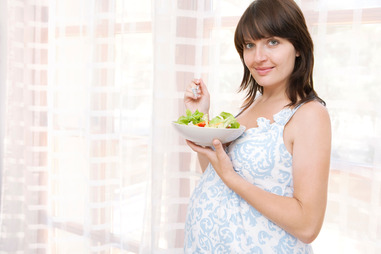There is a lot of effort that goes into raising a child– and that begins with the pregnancy; lots of women are looking for one ideal diet plan when they are anticipating. Nevertheless, exists much difference in between a regular healthy diet and a healthy pregnancy diet plan?
” Eating healthy, in basic, is necessary as it keeps and improves health and avoids the onset of illness. However, eating healthy during pregnancy is important, as throughout this stage, the mother needs to maintain her own health, in addition to supplying appropriate nutrition to the establishing and growing fetus. Absence of specific nutrients during pregnancy not only effects correct growth and advancement of the fetus, it also puts the newborn at a higher threat of diseases in later life, such as the advancement of diabetes, weight problems, hypertension and cardiovascular disease. This is because the absence of specific nutrients throughout pregnancy, or the over-consumption of particular nutrients throughout this stage, can alter the genetic makeup of the newborn, therefore predisposing them to a greater risk of diseases in later life.A mom’s diet can affect her child’s health later on in life.
What foods should I avoid while pregnant?

” Alcohol needs to be avoided; there is no safe level of alcohol that one can have throughout pregnancy. One must limit the consumption of processed foods, as these foods are abundant in preservatives, salt and might likewise contain trans-fat. Limit the consumption of easy sugars; sugar includes calories without providing any other nutrients and can contribute to weight gain, triggering issues during pregnancy. Too much saturated fat intake can increase the possibility of developing heart problem, not just for the mother however likewise for the newborn in their adult life. Try to cut down on hydrogenated fat and take in foods abundant in monounsaturated (olive oil, avocado) and polyunsaturated (such as oils, nuts) fats. Also, limit foods including included salt; research studies have actually recommended that high salt consumption during pregnancy may trigger high blood pressure in the adult life of the newborn/.
This is some foods to avoid consist of:
– Raw meat.
– Fish with mercury.
– Smoked seafood.
– Raw shellfish.
– Raw eggs.
– Raw sushi.
– Soft cheeses.
– Caffeine.
– Alcohol.
– Unwashed vegetables and fruit.
” One need to go for a balanced diet, and include a mix of vegetables, legumes/beans, breads and cereals, milk, yogurt and cheese, meat, poultry, fish and alternatives, and fruits. Protein-rich foods to assist the baby grow. Great sources of protein are meat, fish, chicken, eggs, milk, cheeses, nuts and beans.
” During pregnancy, omega-3 fats are crucial for fetal brain and eye advancement. Fatty fish, such as salmon and mackerel, are a good source of omega-3 fatty acids; nevertheless, heavy metals in fish are an issue throughout pregnancy. Go for cultured fish over wild fish or take fish oil supplements. Folate is important during pregnancy; green leafy veggies are an exceptional source of folate. The requirement for iron likewise increases during pregnancy. Usually, females have difficulty getting adequate iron and folate from foods during pregnancy, hence they should take a supplement that contains folic acid and iron.
It holds true that females need to eat more during pregnancy. Energy needs for pregnant ladies increase throughout their second and 3rd trimesters. During the second trimester, women with a typical body weight at the start of their pregnancy require an extra 340 calories a day, while the requirement increases to an additional 440 calories daily in their 3rd trimester. The extra calories are needed to support the growth and development of the child. The additional calories can be easily met by including an additional 2 to 3 Food Guide Servings each day, for instance a fruit and yogurt for a snack.
Pregnancy is the time when females go through a state of mind and behavioral changes, which is typical due to modifications in hormone balance. It is perfectly great to indulge every as soon as in a while, whether one is pregnant or not. The crucial factor to remember is to limit the intake of simple sugars, added salt and oily foods.
Among the most typical nutrient deficiencies in expectant moms’ diet plan is omega-3 fats. Make sure to consist of flax, chia seeds, hemp seeds, walnuts, fish or fish oil supplements as part of the diet plan. Folate and iron deficiencies prevail. Some other nutrients, such as zinc, magnesium and vitamin B6 are also challenging to fulfill from food alone. Expectant moms’ need to eat according to meet nutrition requirements. Expectant moms should take a day-to-day multivitamin that has 0.4 mg of folic acid and 16 to 20 mg of iron.
The basis of a healthy pregnancy diet is comparable to a normal healthy diet. This consists of a well balanced mix of protein, calcium, whole grains, healthy fats and a rainbow of fruits and veggies. It’s essential to take in adequate protein, omega-3 fatty acids, folate and iron. And do not forget to take advice from your own nutritionist.
